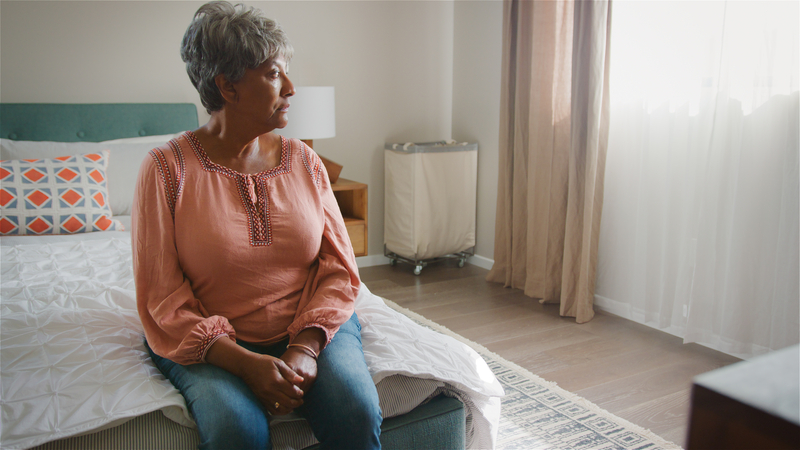Whether by death or divorce, losing a life partner opens the door to a devastating whirlwind of grief. Your day-to-day reality has been irrevocably altered and things will never be the same.
Mutual pleasures like travel, crafting a delicious dinner, or even just taking an evening stroll through a favorite public park can suddenly feel barren, stripped of all their formerly wondrous significance and joy. To make matters worse, close friendships are apt to fracture along partner lines for divorcees and invites to previously cherished couples’ functions may evaporate.
“The primary, terrible loss of a spouse or partner is just a part of the whole grievous equation,” writes Sophia Dembling in her Psychology Today column, “Widow’s Walk.” The deluge of secondary losses like those above can seriously erode or even eradicate your sense of purpose, which studies have linked to increased risks for negative physical and mental health outcomes, including early mortality.
You’ve lost “part of your identity,” Dembling continues. “We were Tom-and-Sophie – a solid entity, sturdy on four legs. Now Sophie floats out there in the world, alone, unprotected and vulnerable.”
Luckily, experts like Dembling agree that, while it may be tough, you can work through the grief and hardship after losing a life partner, finding a renewed sense of personal identity and purpose beyond the life you built with your partner. Here, we explore some tips and tricks to help you navigate the process.
Grieve fully, live fully
 Understanding and navigating grief can be a long, painful process. But veteran bereavement counselor Trisha Lundin says that grieving fully is critical for those seeking to reclaim a personal sense of purpose after the separation from or loss of a spouse.
Understanding and navigating grief can be a long, painful process. But veteran bereavement counselor Trisha Lundin says that grieving fully is critical for those seeking to reclaim a personal sense of purpose after the separation from or loss of a spouse.
“Change is the challenge we face as something old gives way to something new… [and] grief can call us to find change within ourselves,” she writes. “This change reminds us that the space within ourselves that feels sorrow for what we once loved can also feel joy for the hope in what is yet to come.”
There will be good, bad, and downright terrible days, and the pain of your loss may never fully dissipate. But simply knowing that you want to find new purpose and holding tight to that desire can serve as a guiding light through the dark, confusing tunnel of grief.
“It is important in times of loss to honor the natural emotions we experience and endure the heavy weight change can bring,” Lundin writes. But “we find growth in our continued quest to explore meaning and purpose in our own stories and transform our perspective.”
What is a sense of purpose, anyway?
The question may sound ridiculous, but the concept of ‘purpose’ is often intangible or murky at best. And that can cause serious problems for those suffering the loss of a life partner later in life, especially if they don’t have a career to focus on as they regain emotional footing.
Purpose is a “a hard-to-pin-down concept, different from ambition,” writes Dembling. “To me, it translates to feeling a reason to get up in the morning, a sense that your life is leading you somewhere that feels important in heart and soul.”
She urges those who’ve lost a spouse to think deeply about what they value and love the most. Ask yourself questions like, “What brings me joy?” or, “What do I want more of in my life?” For some, it could be spending more time with grandchildren or volunteering at an animal shelter. Others may want to read more books, take up plein air painting, or finally hike the Appalachian Trail.
Whatever the answers may be, they can help turn your attention away from the conclusions of the past and toward the possibilities of the future.
After losing a life partner: small steps, big results
You’ve probably heard of Chinese philosopher Lao Tzu’s famous adage, “A journey of a thousand miles begins with a single step.” Both Dembling and Lundin encourage late-in-life divorcees or those who’ve been widowed to embrace a similar mindset.
Initially after losing a life partner, your purpose may simply be trying to stay open to change and “putting one foot in front of the other,” says Dembling. That may not sound exciting, but it does keep you moving forward. And the incremental progress can yield incredible outcomes over time.
“Every step forward – no matter how tiny – is still movement in the right direction,” wrote Dr. David R. Hamilton, author of How Your Mind Can Heal Your Body. “It’s tempting to believe that only big, dramatic efforts bring results, but more often than not it’s the small, consistent actions that actually shape our lives.”
He says that, if you consistently focus on bringing more of what you want into your life, that’s exactly what will happen. It may take a while, but if you stick to it, you’ll find yourself on a journey of self-discovery that leads to a new and fulfilling sense of purpose.
More insights from Seniors Guide:
Adjusting To Loss
Managing Grief Through Self Care





